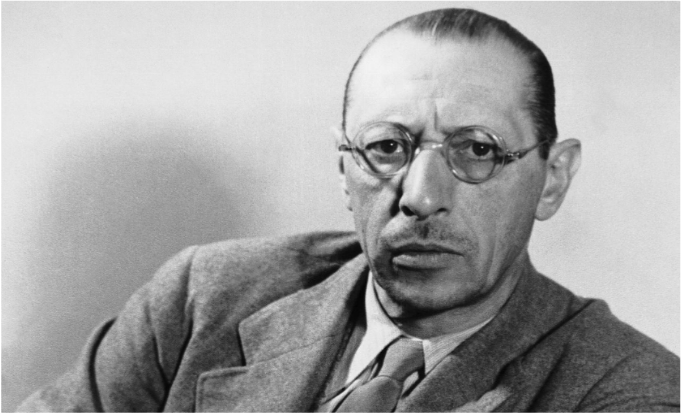


Russian born composer whose work and musical thought created a new perspective in music and influenced many future composers. His compositions, most importantly the "Rite of Spring", the "Firebird" and "Petrushka", " were the first early examples of modernism in music.
Although born into a family with musical, literary and theatrical background, which left a mark on him and influenced his thinking, he did not show as early music talent. He studied Law and Philosophy and it is during his academic studies that he realized he had an inclination for composing. Nikolai Rimsky-Korsakov helped him develop his aptitude by becoming his mentor and using his networks to get his students' work performed. As a result, Stravinsky's fame started growing.
His premiere of the "Firebird" in 1910 established him as one of the most talented young composers. A few years later, just before World War I, he composed the "Rite of Spring" whose premiere was probably the most scandalous performance in the musical history, by provoking a public outcry. The music was so provocative and daring and the choreography so original and unusual that the music could barely be heard from the loudness of the crowd's cheers, yells and arguments.
In 1905, Stravinsky married his first cousin, Katya, despite the Church's opposition to marriage between first cousins. After the outbreak of World War I, he lived with his family in Switzerland. In 1920, he moved to France where he met another woman, Vera, and led a double life, dividing his time between the two women. Later in his life, following the death of his wife and daughter from tuberculosis, he moved to the US in 1939, where he married Vera.
During his absence from the Soviet Union, the Russian Revolution broke all ties between him and Russia so Stravinsky tried to fill this gap by incorporating Russian folklore elements in his music.
Following his death in 1971, the New York Philharmonic musical director Pierre Boulez said: "Something radically new, even foreign to Western tradition, had to be found for music to survive and to enter our contemporary era. The glory of Stravinsky was to have belonged to this extremely gifted generation and to be one of the most creative of them all".